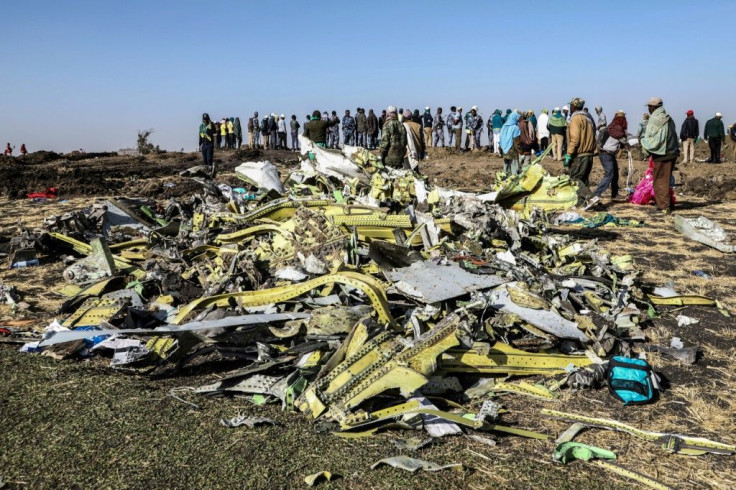Boeing Training On 737 MAX 'Inadequate': Ethiopia Crash Report

Ethiopia's probe of last year's Ethiopian Airlines crash found that Boeing did not provide sufficient training for the 737 MAX and that crucial flight software was flawed, according to an interim report published Monday.
The crash of the Nairobi-bound Boeing 737 MAX six minutes after takeoff on March 10, 2019, killed all 157 people on board, triggering the global grounding of the MAX in the worst crisis in Boeing's history.
It followed the October 2018 crash of a 737 MAX operated by Lion Air in Indonesia, which killed 189 people when it crashed moments after leaving Jakarta airport.
Both accidents saw uncontrolled drops in the aircraft's nose in the moments before the planes crashed, which investigators have blamed on the model's anti-stall flight system, the Maneuvering Characteristics Augmentation System, or MCAS.
A preliminary report by Ethiopian investigators released last April said the crew of Flight 302 repeatedly followed procedures recommended by Boeing but were unable to regain control of the jet.
The new interim report published Monday says that the design of the MCAS system "made it vulnerable to undesirable activation". Specifically the report points to the fact that the system could be activated by a single angle-of-attack sensor reading.
The indicators measure the plane's angle vis-a-vis oncoming air to warn of impending stalls.
The report also states that training provided by Boeing on the 737 MAX "was found to be inadequate".
It recommends that training simulators need to be capable of simulating scenarios in which the sensor fails.
The new interim report was released one day before the one-year anniversary of the crash.
Relatives of many of the victims, who hailed from more than 30 countries, have flown to Ethiopia and are expected to attend a memorial ceremony at the crash site on Tuesday.
Last week a US congressional committee said Boeing made missteps and withheld information about the 737 MAX and that federal regulators failed to provide proper oversight, resulting in a "fundamentally flawed" aircraft.
© Copyright AFP 2024. All rights reserved.





















